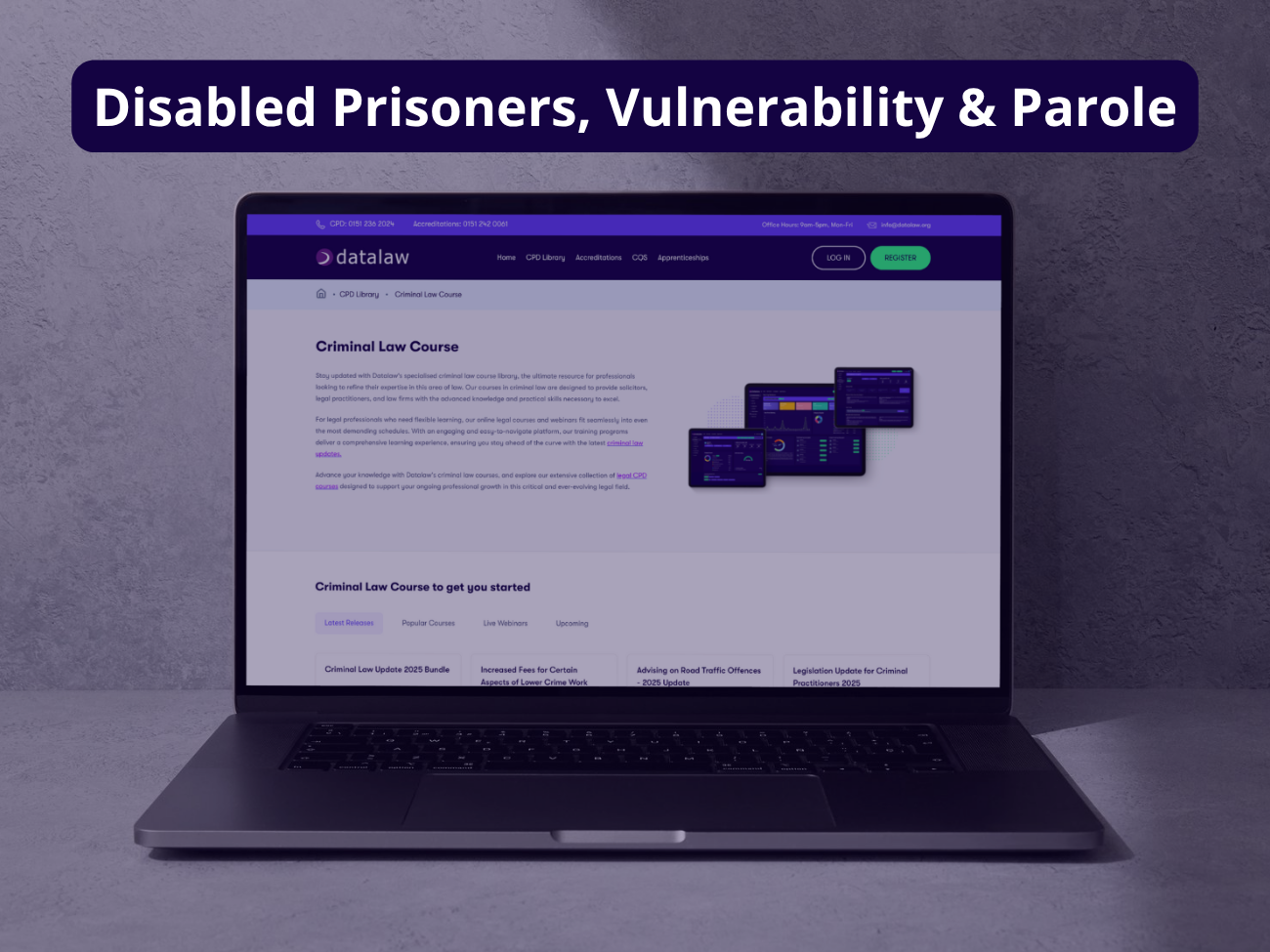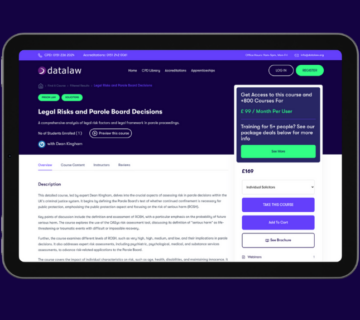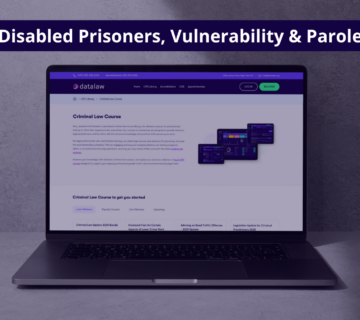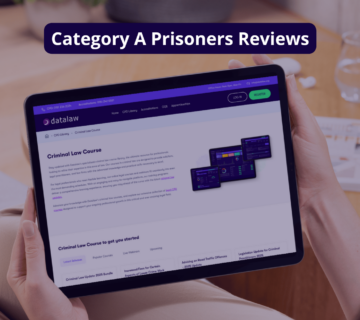Understanding Disability in the Context of Parole
Disability, as defined by the Equality Act 2010, encompasses both physical and mental impairments that substantially and long-term affect an individual’s ability to perform daily activities. This definition is broad, ensuring protection under the Act for a wide range of conditions, including cancer, blindness, multiple sclerosis, and HIV, regardless of their impact on day-to-day tasks.
Download Our Free “Vulnerable Disabled Prisoners And Parole” E-Book
The Duty of Care within the Prison Service
The prison service holds a common law duty to safeguard those in its custody from foreseeable harm, abuse, and neglect. This involves creating a safe environment, a responsibility highlighted under the Prison Service Instruction on Adult Safeguarding (PSI16/2015). Such measures ensure that vulnerable individuals, including disabled prisoners, receive appropriate protection and care.
Evidence of Disability and Reasonable Adjustments
The parole process often begins with assessing available evidence in the parole dossier and, if necessary, extends to medical records and specialist assessments. The Equality Act 2010 mandates reasonable adjustments to mitigate the disadvantages faced by disabled individuals. These adjustments can vary significantly, tailored to individual needs, and include modifications to the environment, work duties, and provision of specialized equipment or support.
The Role of the Care Act in Supporting Disabled Prisoners
The Care Act provisions emphasise the responsibility of local authorities to assess and meet the care and support needs of adults in prison settings. This framework ensures that prisoners have access to services equivalent to those available in the community, fostering consistency and support across different institutions.
Mental Health Transfers and Parole Litigation Support
For prisoners with mental health conditions requiring specialised care, transfers to appropriate facilities are governed by the Mental Health Act 1983. The process is initiated by prison psychiatrists to ensure that inmates’ mental health needs are adequately addressed. Furthermore, the Parole Board provides guidance on appointing a litigation friend for prisoners unable to participate effectively in their parole proceedings due to mental incapacity.
Datalaw’s Vulnerable Disabled Prisoners And Parole Course
For legal professionals seeking comprehensive knowledge and understanding of the complexities surrounding vulnerable disabled prisoners and parole decisions, Datalaw offers a specialised CPD course. This course delves into the legal frameworks, best practices, and practical strategies for effectively advocating for and supporting disabled individuals within the criminal justice system. By taking this course, legal practitioners can enhance their expertise and contribute to the fair and equitable treatment of all individuals, ensuring that justice is accessible to everyone, regardless of disability status. Learn more about Datalaw’s Vulnerable Disabled Prisoners And Parole course.
Assessing Disability’s Impact on Parole Decisions
Evaluating how a disability might affect a prisoner’s risk profile is crucial in parole decisions. Considerations include the capacity to cause harm and whether the disability might alter risk levels. Effective parole hearings must address these factors comprehensively, ensuring that decisions reflect a nuanced understanding of the individual’s condition and needs.
In conclusion, the intersection of disability and parole decisions requires a multifaceted approach, incorporating legal frameworks, individual assessments, and tailored support systems. Ensuring that vulnerable disabled prisoners receive appropriate care, support, and consideration in parole decisions is fundamental to justice and rehabilitation efforts.



